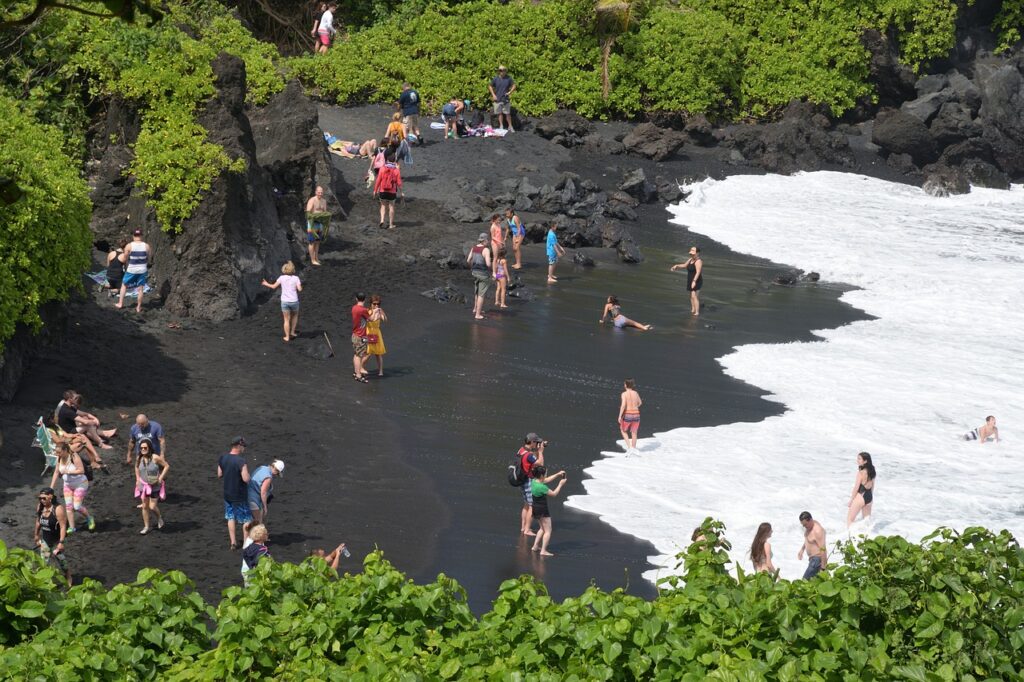Maui is an amazing place to vacation, offering a wide variety of leisure and adventure activities. Injuries can occur from various recreational activities or due to a lack of safety standards from hotels, restaurants, or other businesses catering to tourists.
There can be variety of tourist incidents that need further investigation.
Including tour or shuttle bus operators from distracted driving, speeding, or failure to yield.
Such as ATVs, zip lines, scuba equipment, and more.
For tour buses, rental cars, ATVs, helicopters, or other vehicles used in recreational activities
For tours, activities, swimming pools, hotels, and resorts.
On excursions and tours.
That lead to slip and fall or other accidents.

Specific legal criteria must be met to have a valid tourist injury lawsuit, which includes the following elements:
The plaintiff must show that the defendant owed a duty of care to ensure the safety of visitors. This duty can be owed by businesses, property owners, tour operators, or rental agencies.
The plaintiff must prove that the defendant breached this duty through negligence or failure to adhere to safety standards, such as inadequate maintenance, unsafe conditions, or failure to provide adequate warnings.
The plaintiff must establish a direct link between the defendant’s breach of duty and the injury sustained by demonstrating that the defendant’s actions or negligence directly caused or significantly contributed to the injury.
The plaintiff must provide evidence of the injury and damages suffered. This includes medical records, proof of lost wages, and documentation of the injury’s impact on the plaintiff’s life.
The statute of limitations is the length of time you have to file a lawsuit after an accident. It can vary by state, but in Hawaii, you have two years after the date of the injury to file a tourist injury lawsuit. There may be some exceptions to the statute of limitations if the full extent of the injuries is discovered at a later date.
In tourist injury cases, clients may be eligible to recover multiple types of damages, including:
This includes medical expenses, lost wages, including future earnings from a long-term or permanent disability, and applicable property damage to the plaintiff, such as luggage or electronics.
This includes compensation for the physical pain and emotional suffering, loss of enjoyment of life due to the injuries, and loss of consortium, which provides for the negative impact on the plaintiff’s personal relationships including loss of companionship and support.
If a case is particularly egregious or malicious, punitive damages may be awarded to punish the defendant and deter similar behavior. These damages are less common and require proof of intentional misconduct or gross negligence.

A lawsuit cannot reverse your injuries. However, the legal process can help you find justice and heal while ensuring you are financially sound in the future. After an initial consultation, our experienced team will provide an honest assessment of whether your case has merit. If we can help, we assess all the evidence so you can receive fair compensation for the full extent of your loss.
Find quick answers to common questions about preparing for a tourist injury consultation.
In Hawaii, you have two years after the date of an accident to file a claim. There may be some exceptions to the statute of limitations if the extent of your injuries were not immediately known.
If you believe your accident in Maui was preventable, you need to file a lawsuit with a lawyer in Hawaii. We will handle all jurisdiction issues for filing the case.
Many cases are settled without going to court, although we certainly will go to court if we believe that will achieve a fair outcome. We can coordinate obtaining witness statements even if they do not live in Hawaii.
It depends on what caused the accident. If you believe the equipment, tour operator, or guide was negligent in some way, you may still have a case. We can evaluate all the evidence as well as the signed waiver and what it covers to help determine if you have a valid case and against who – it could be the tour operator, equipment manufacturer, or another liable party.
Comparative fault means the plaintiff’s conduct partially contributed to the accident and your financial compensation could be reduced. In many cases, the defendant will try to apply comparative fault to a case, but whether it applies depends on the evidence and facts of the case. Hospitality companies often try to blame a guest’s behavior for the accident. We believe in thorough investigations to ensure all the underlying causes of an accident are fully understood.